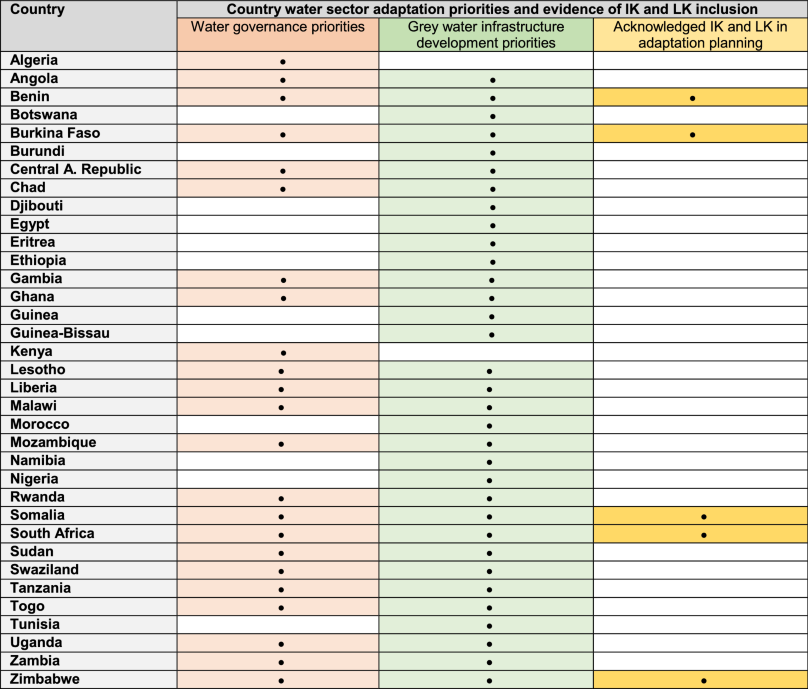The role of indigenous knowledge and local knowledge in water sector adaptation to climate change in Africa: a structured assessment
Evidence is increasing of human responses to the impacts of climate change in Africa. However, understanding of the effectiveness of these responses for adaptation to climate change across the diversity of African contexts is still limited. Despite high reliance on indigenous knowledge (IK) and local knowledge (LK) for climate adaptation by African communities, potential of IK and LK to contribute to adaptation through reducing climate risk or supporting transformative adaptation responses is yet to be established. Here, we assess the influence of IK and LK for the implementation of water sector adaptation responses in Africa to better understand the relationship between responses to climate change and indigenous and local knowledge systems. Eighteen (18) water adaptation response types were identified from the academic literature through the Global Adaptation Mapping Initiative (GAMI) and intended nationally determined contributions (iNDCs) for selected African countries. Southern, West, and East Africa show relatively high evidence of the influence of IK and LK on the implementation of water adaptation responses, while North and Central Africa show lower evidence. At country level, Zimbabwe displays the highest evidence (77.8%) followed by Ghana (53.6%), Kenya (46.2%), and South Africa (31.3%). Irrigation, rainwater harvesting, water conservation, and ecosystem-based measures, mainly agroforestry, were the most implemented measures across Africa. These were mainly household and individual measures influenced by local and indigenous knowledge. Adaptation responses with IK and LK influence recorded higher evidence of risk reduction compared to responses without IK and LK. Analysis of iNDCs shows the most implemented water adaptation actions in the academic literature are consistent with water sector adaptation targets set by most African governments. Yet only 10.4% of the African governments included IK and LK in adaptation planning in the iNDCs. This study recommends a coordinated approach to adaptation that integrates multiple knowledge sources, including IK and LK, to ensure the sustainability of both current and potential water adaptation measures in Africa.
